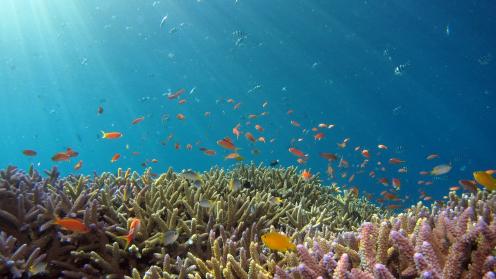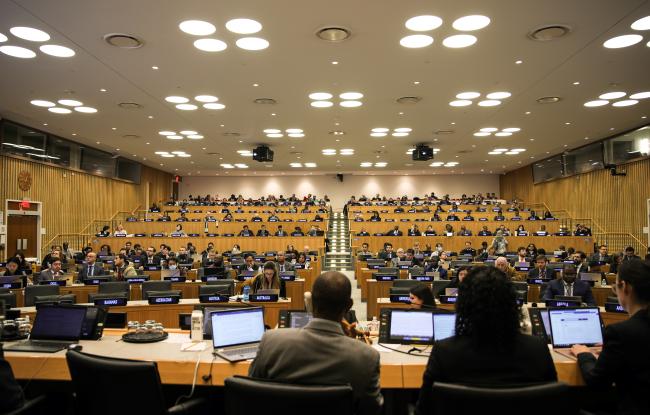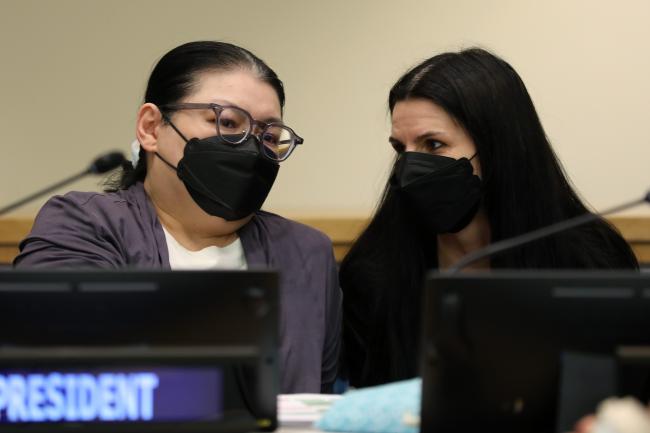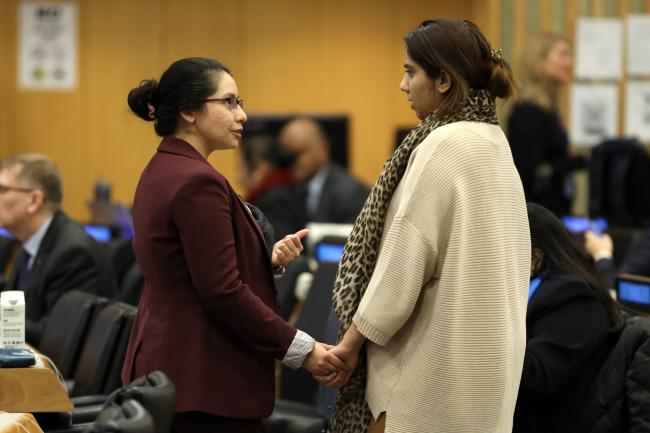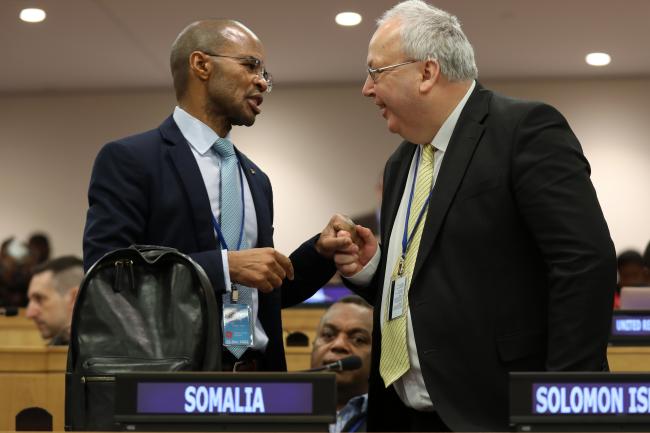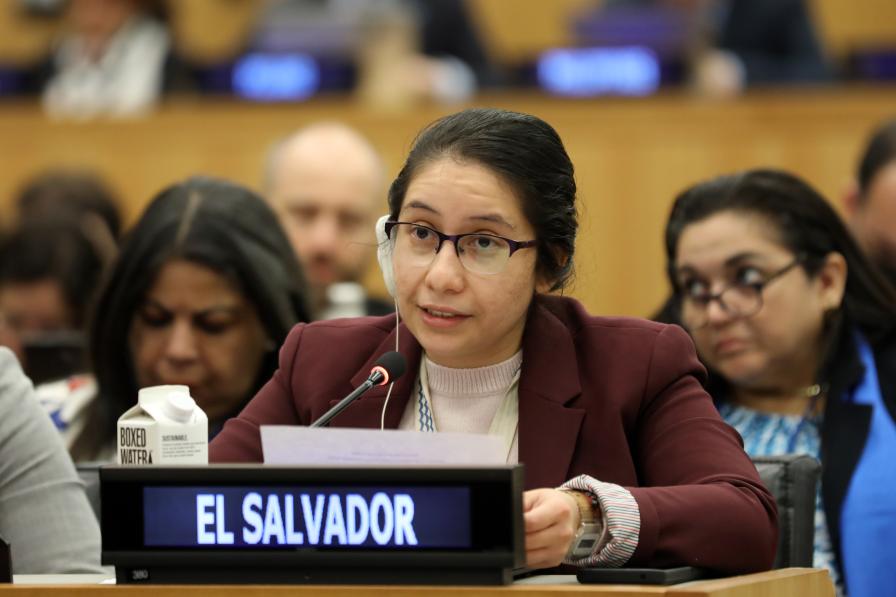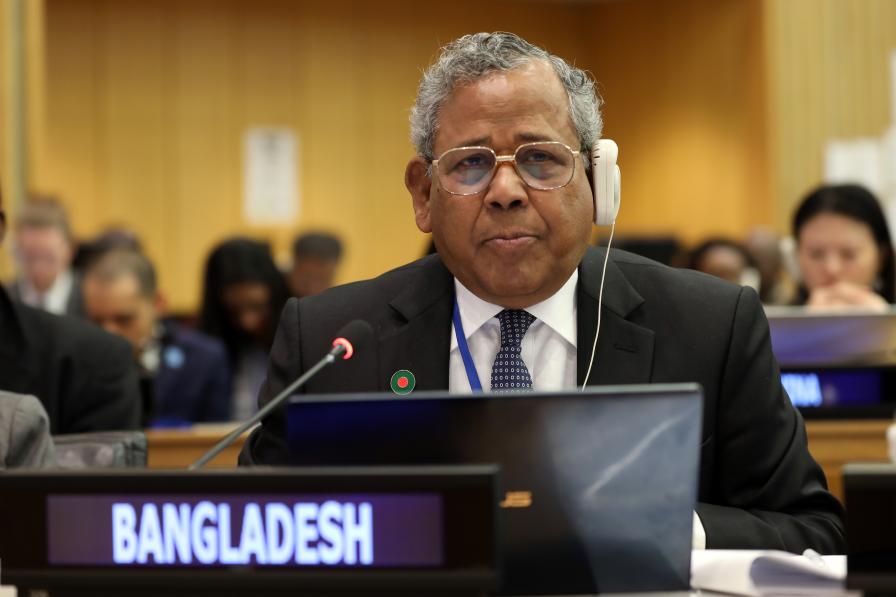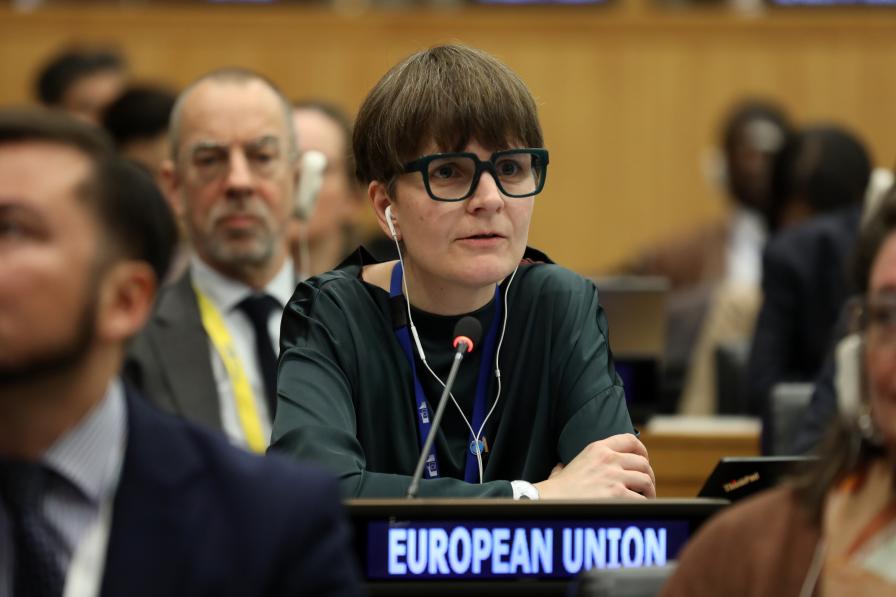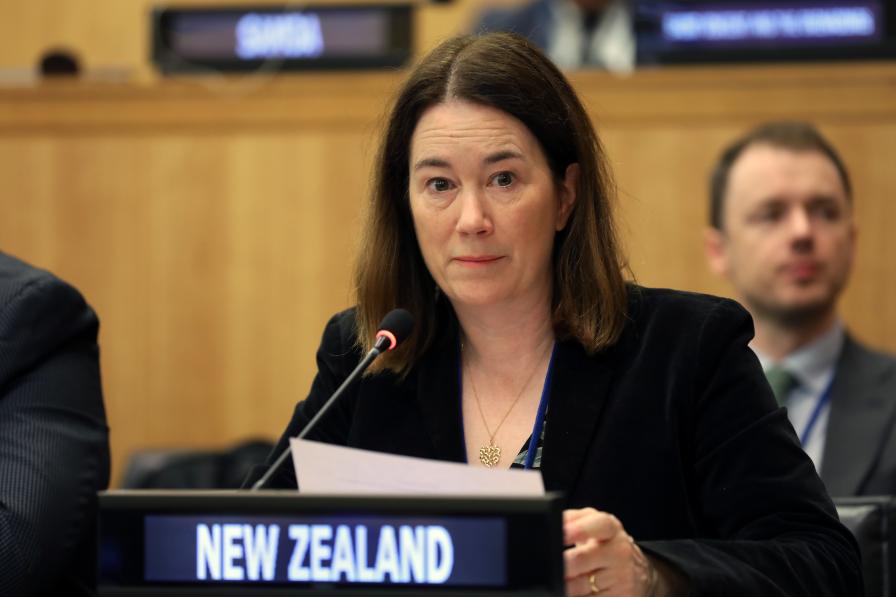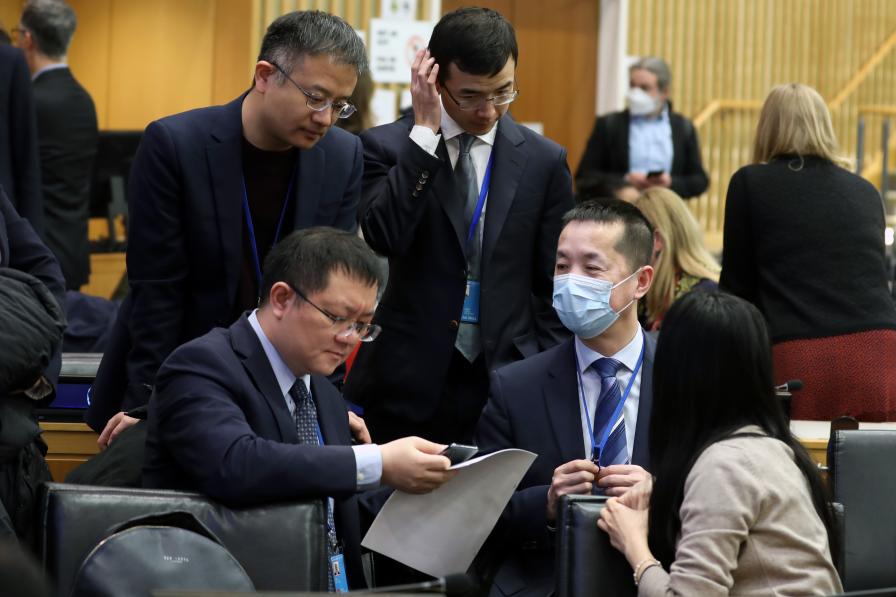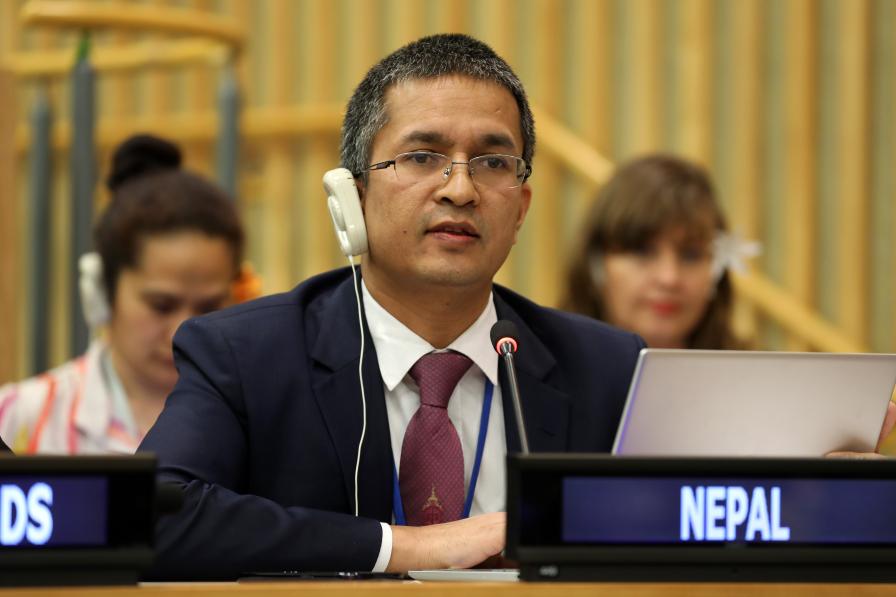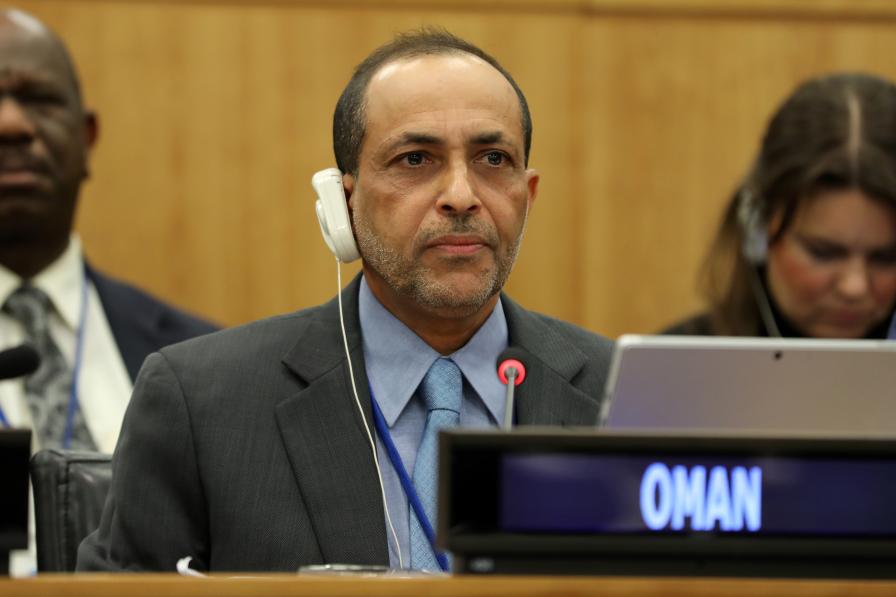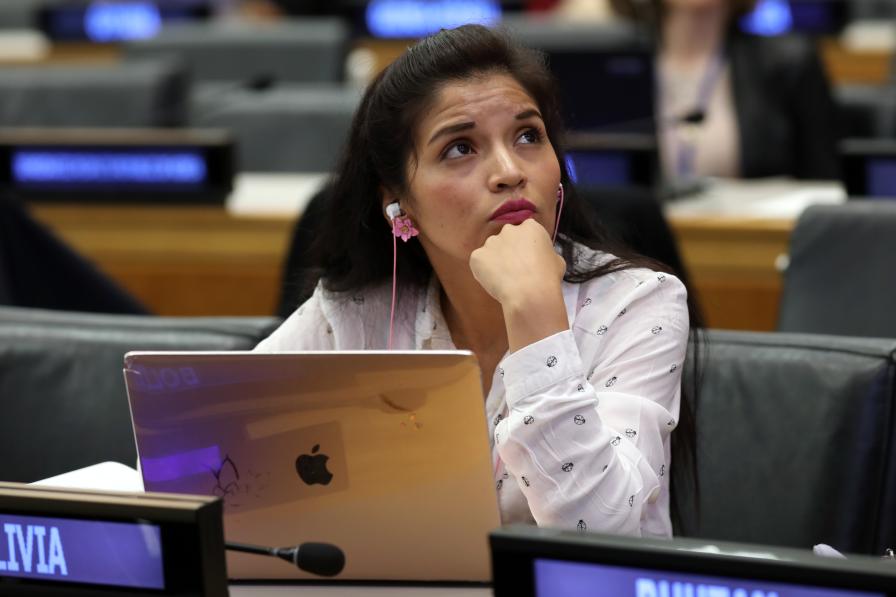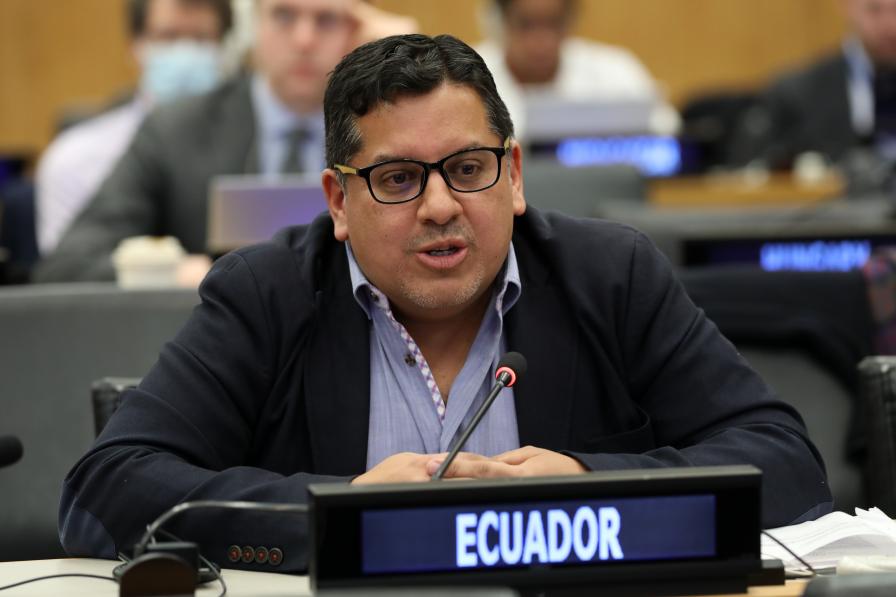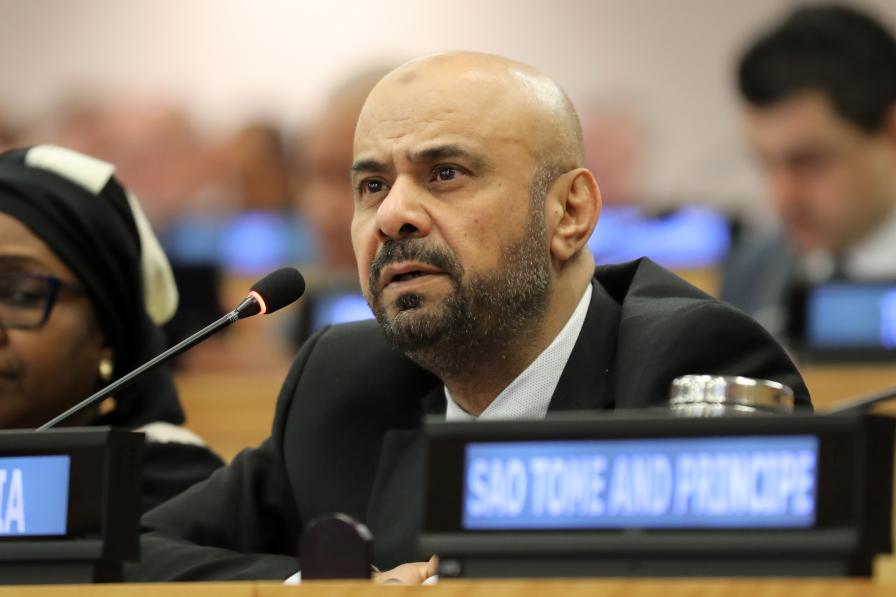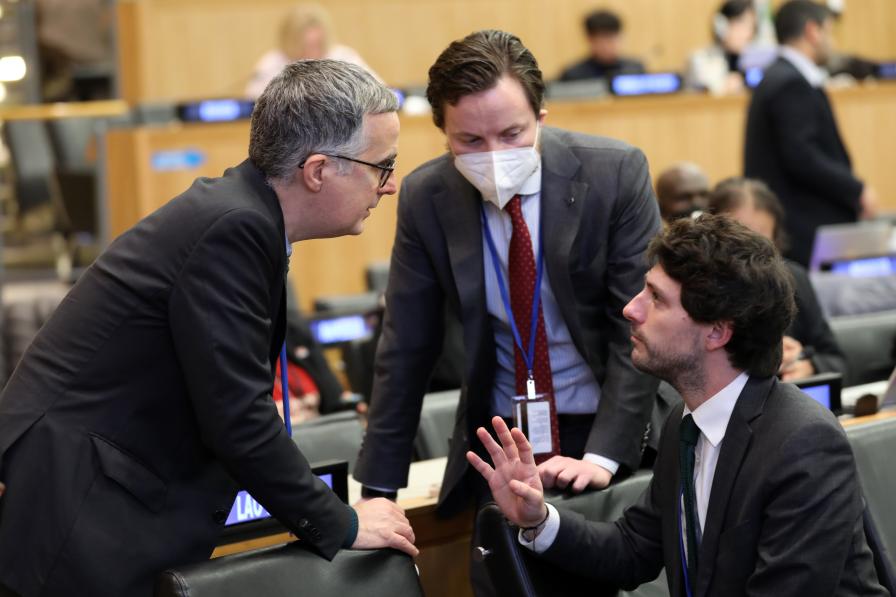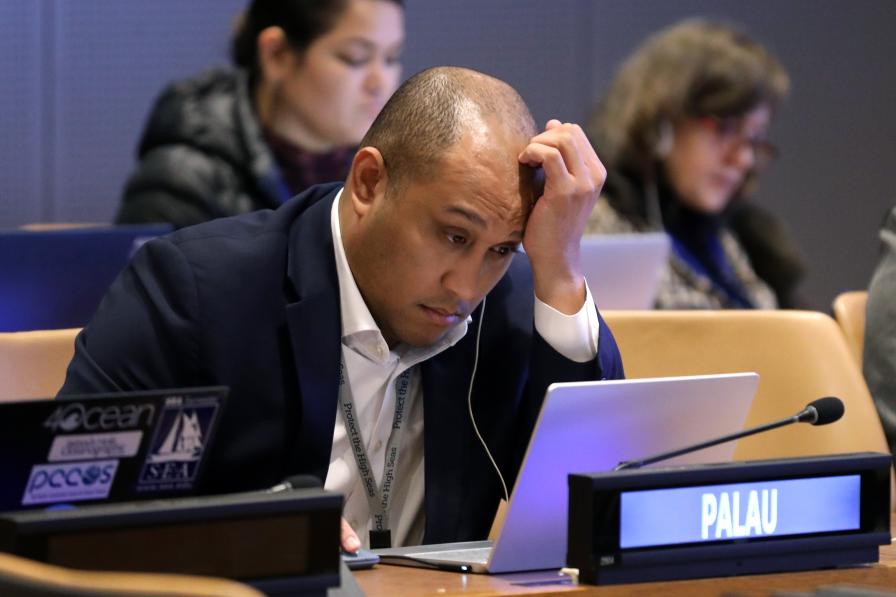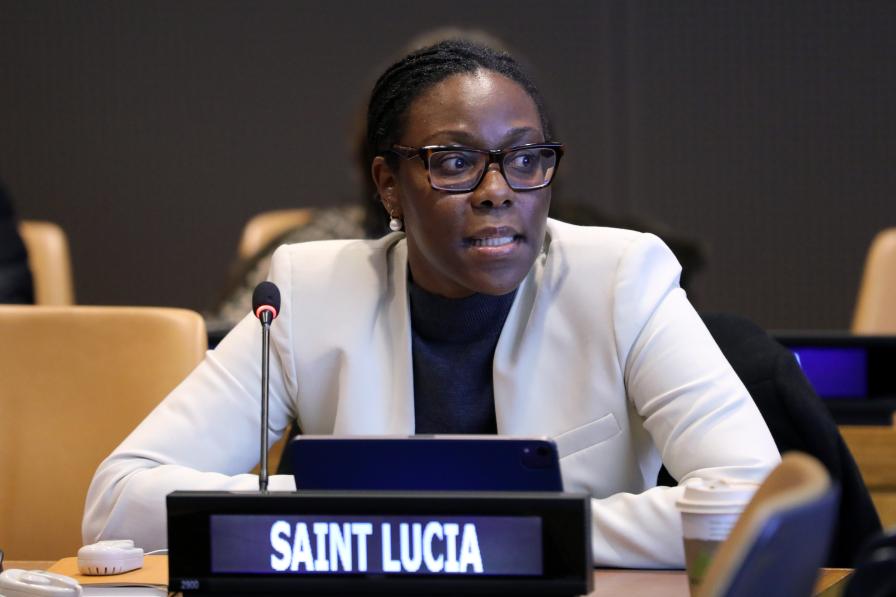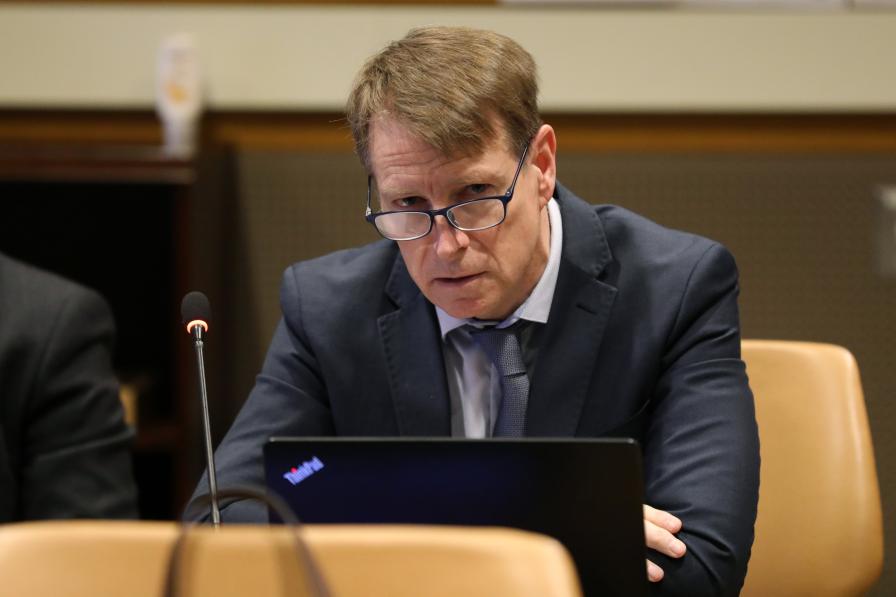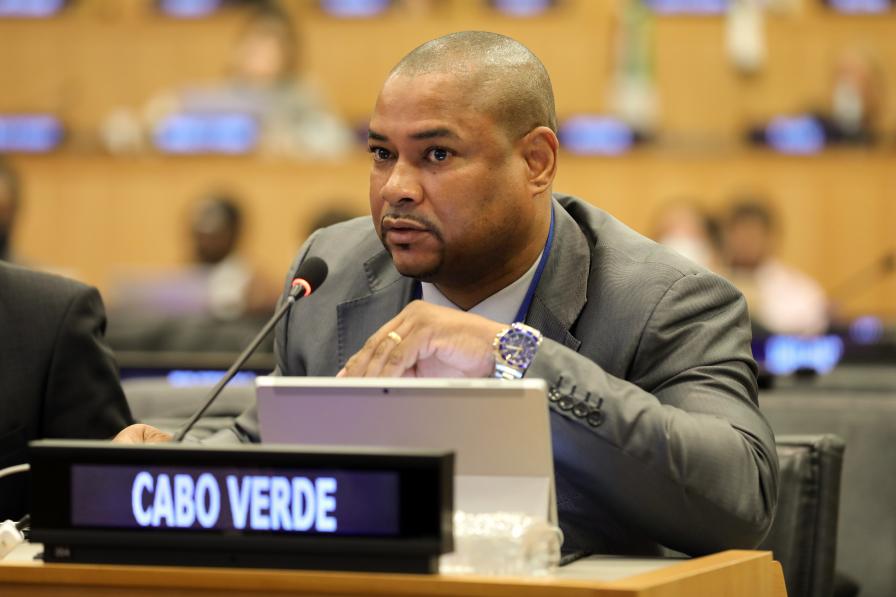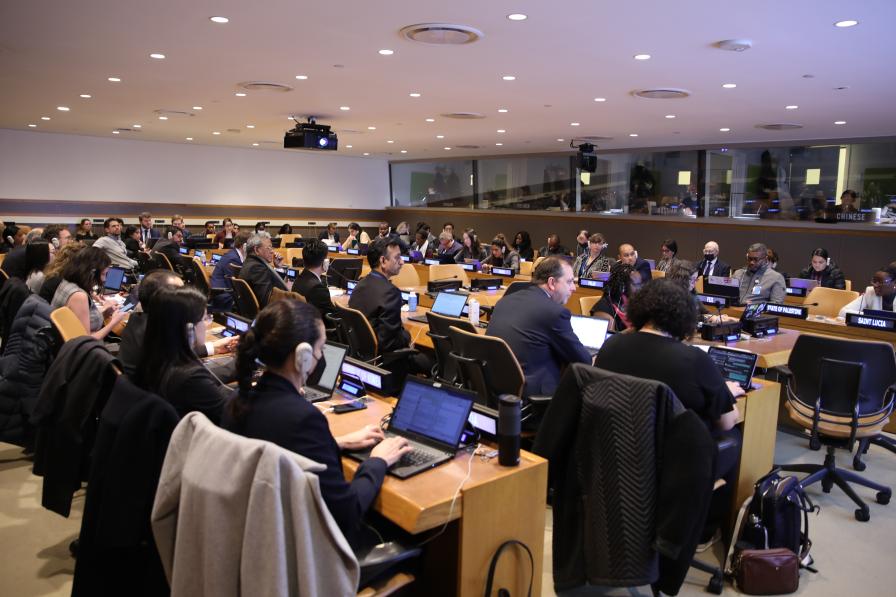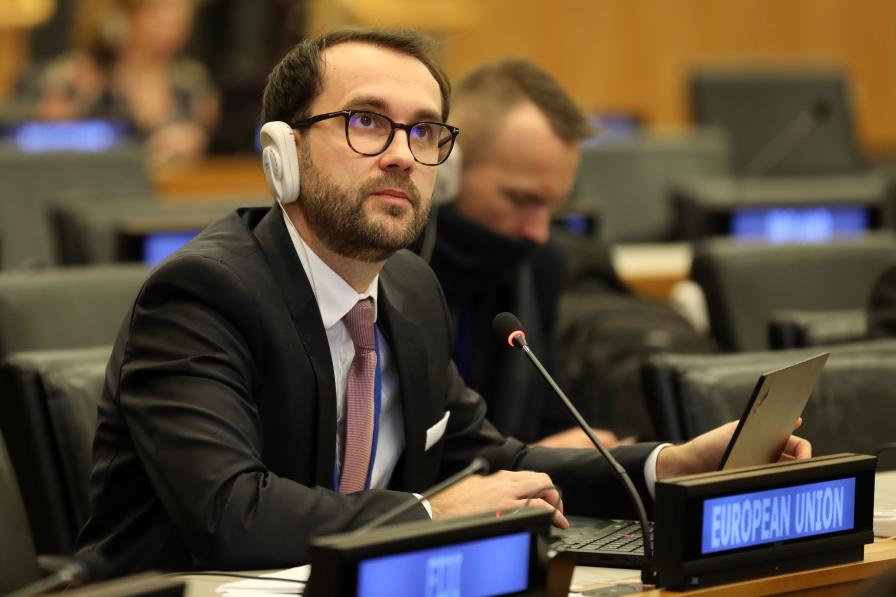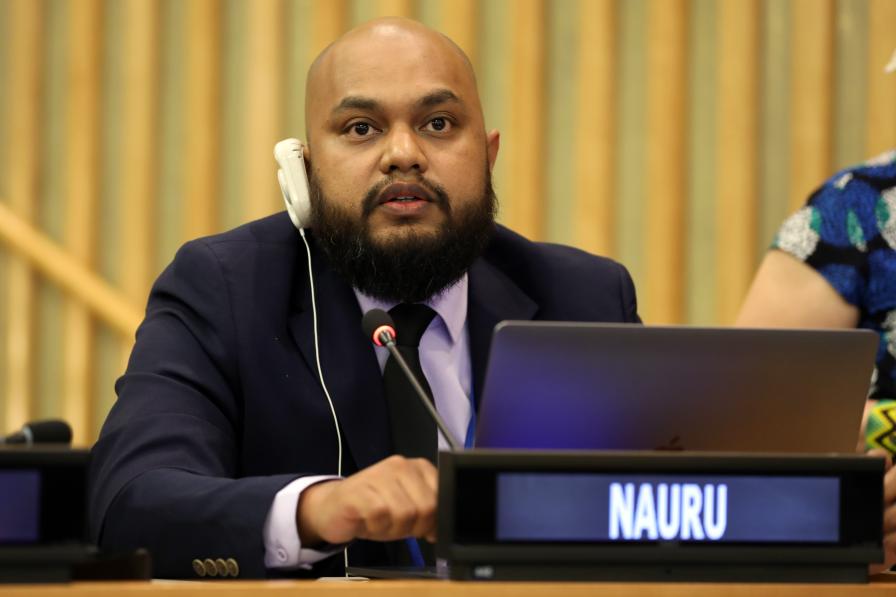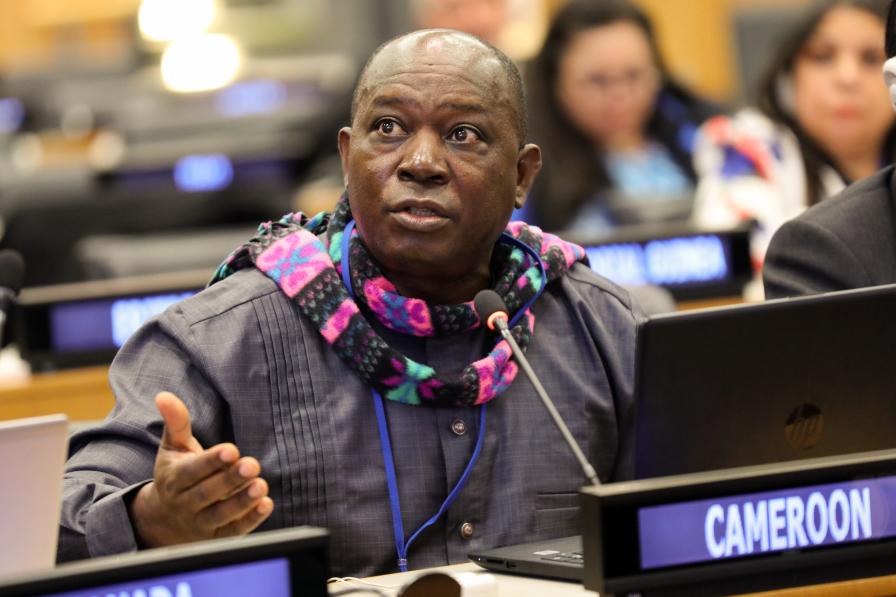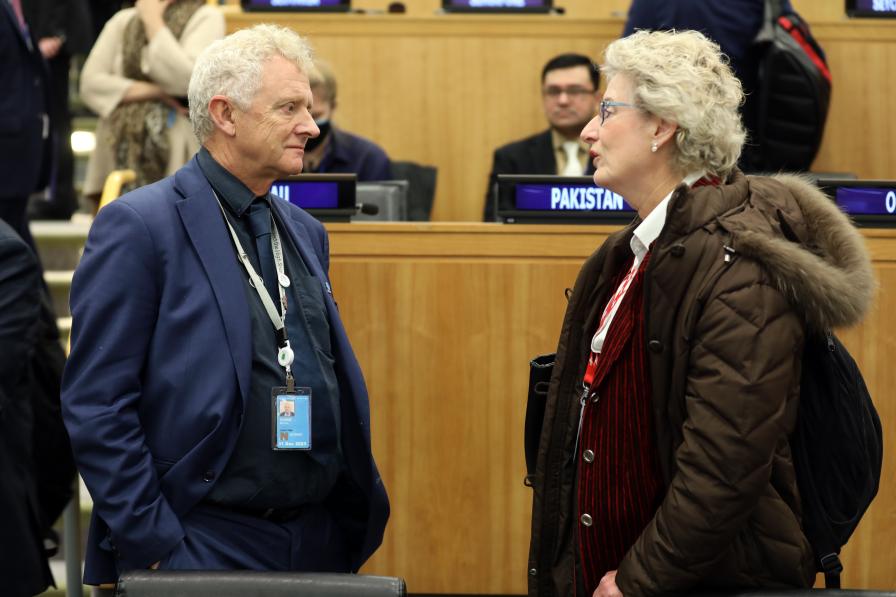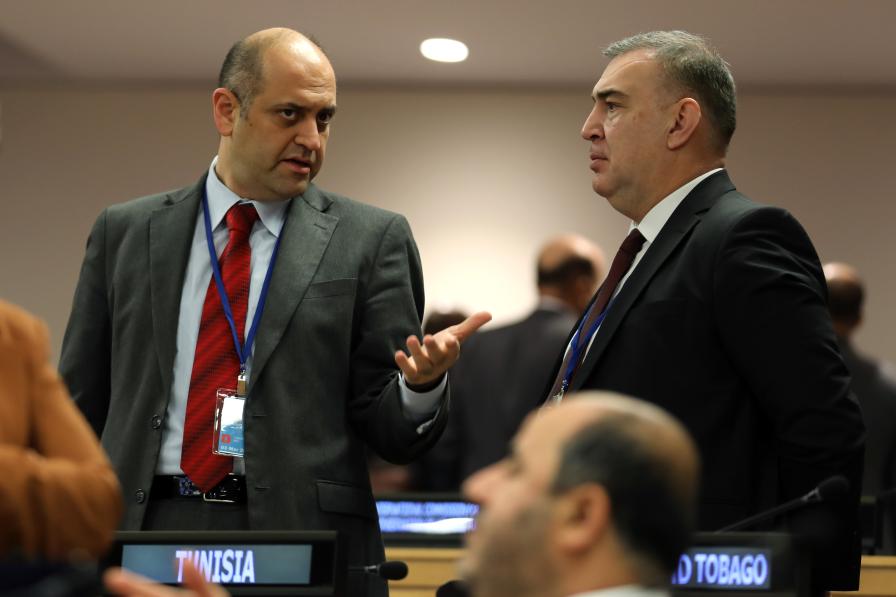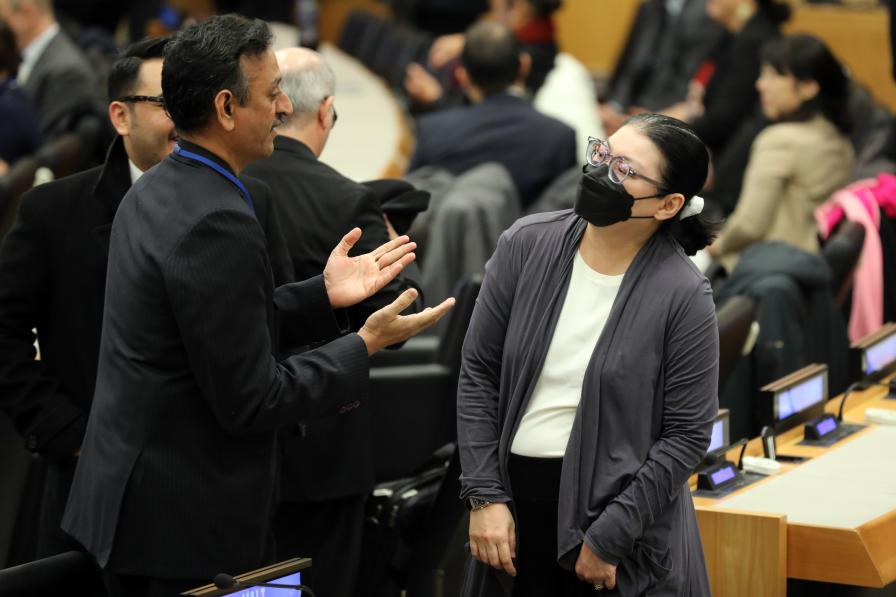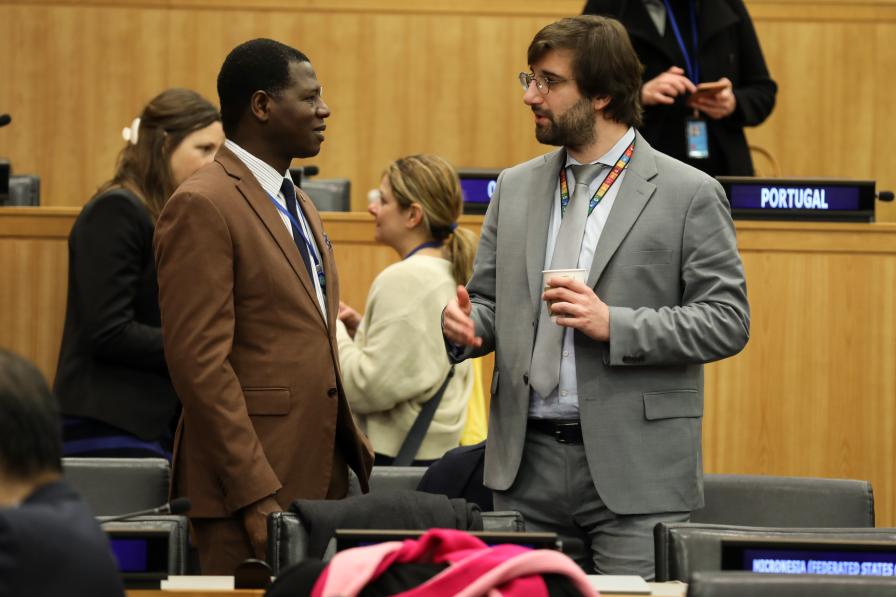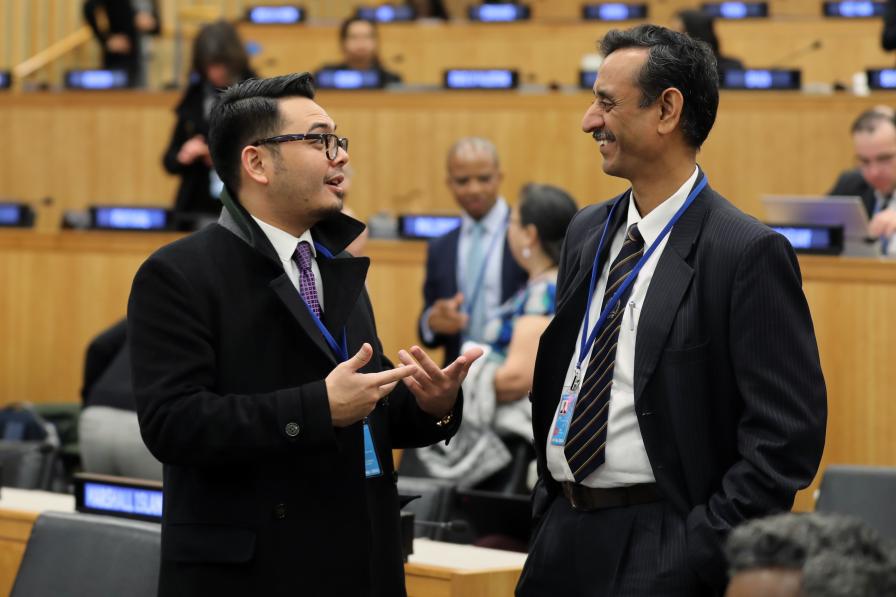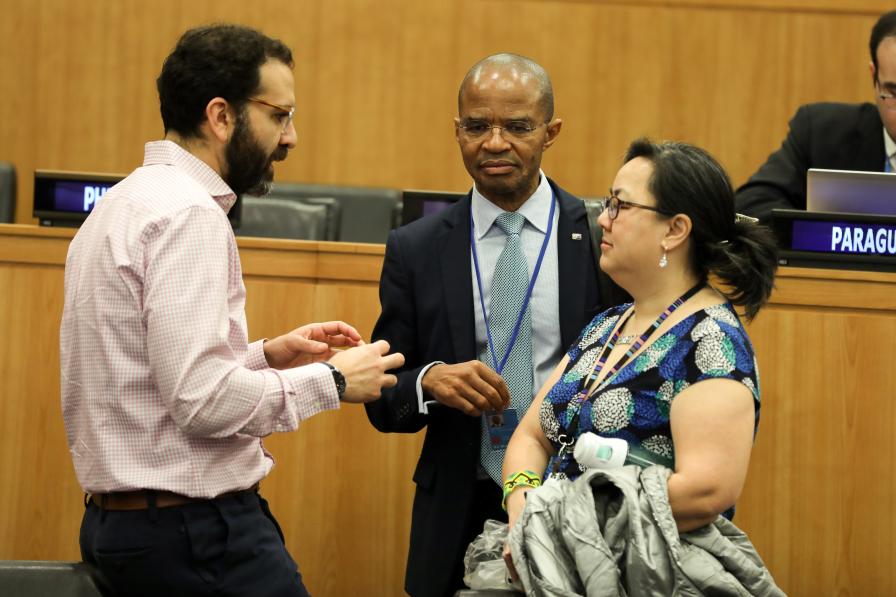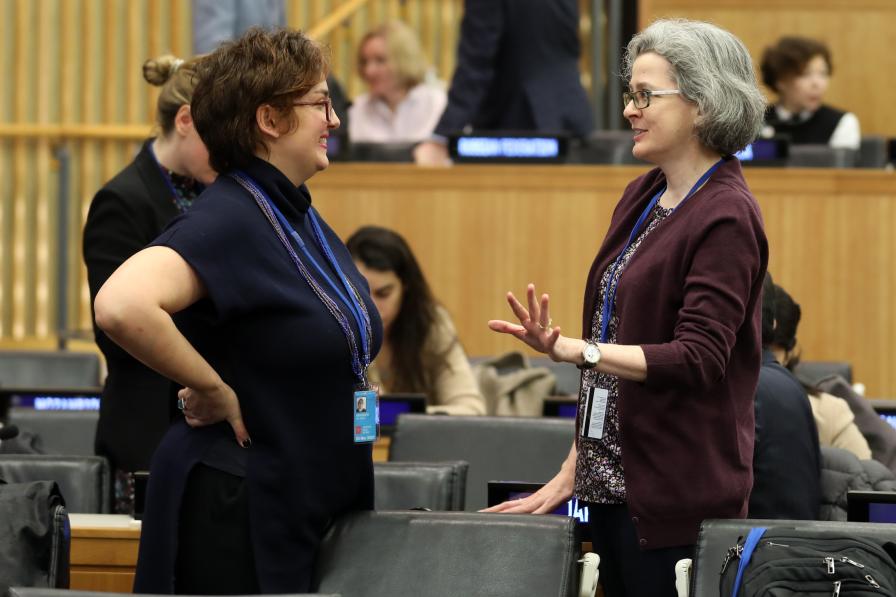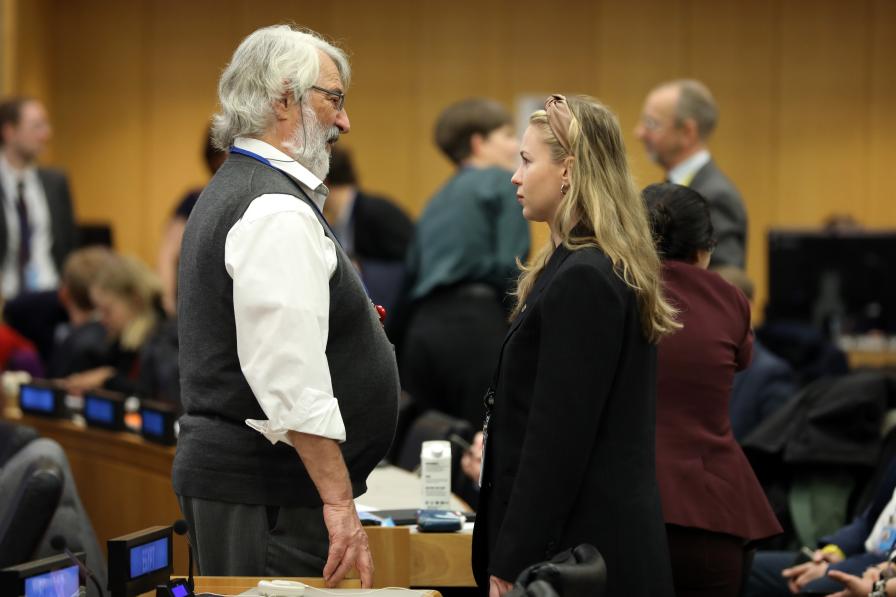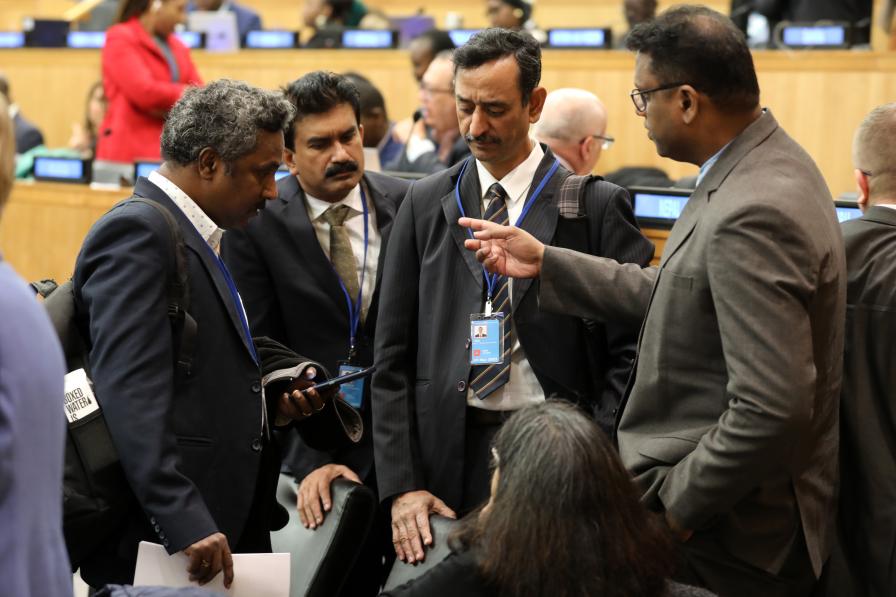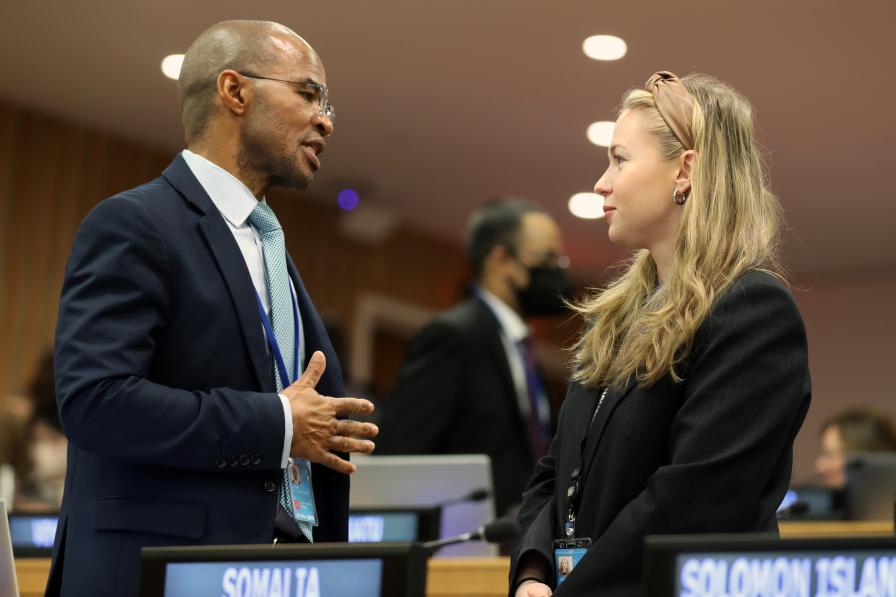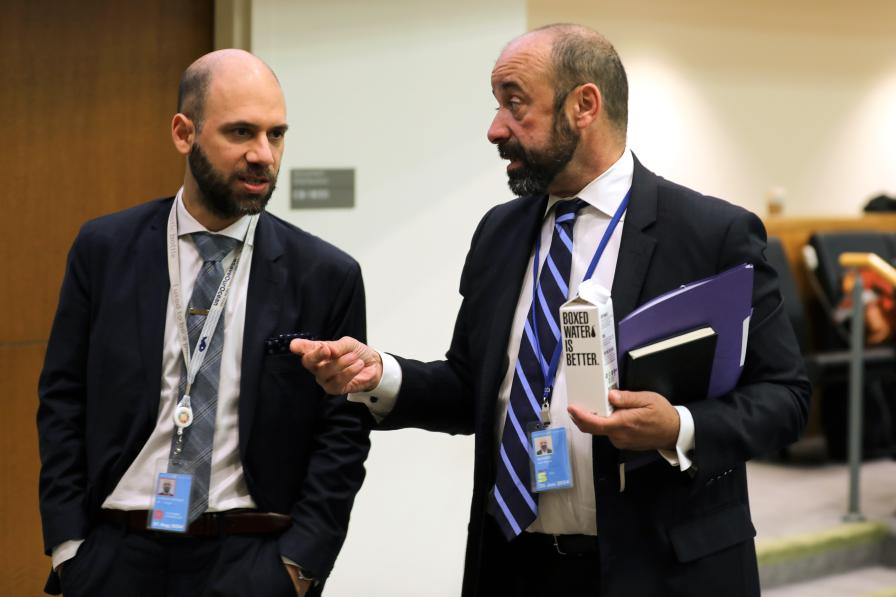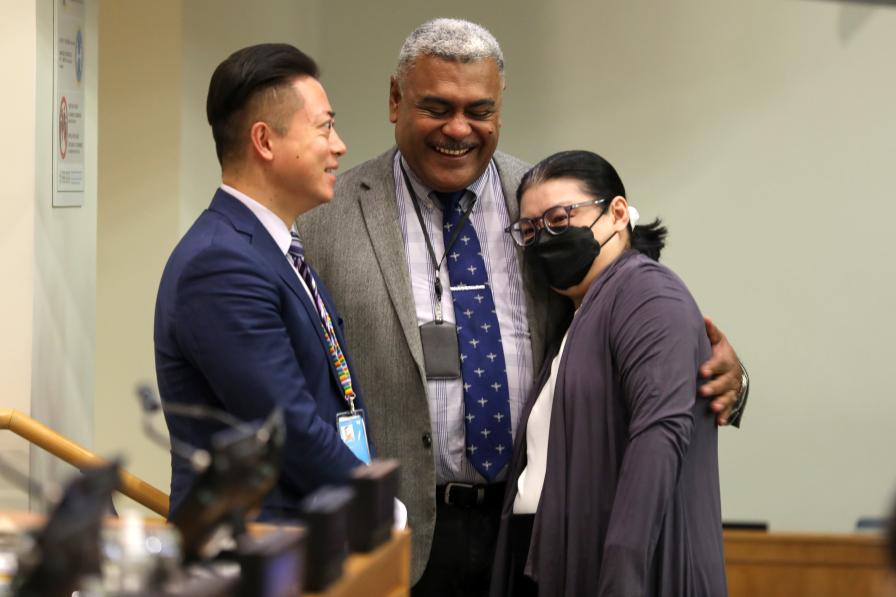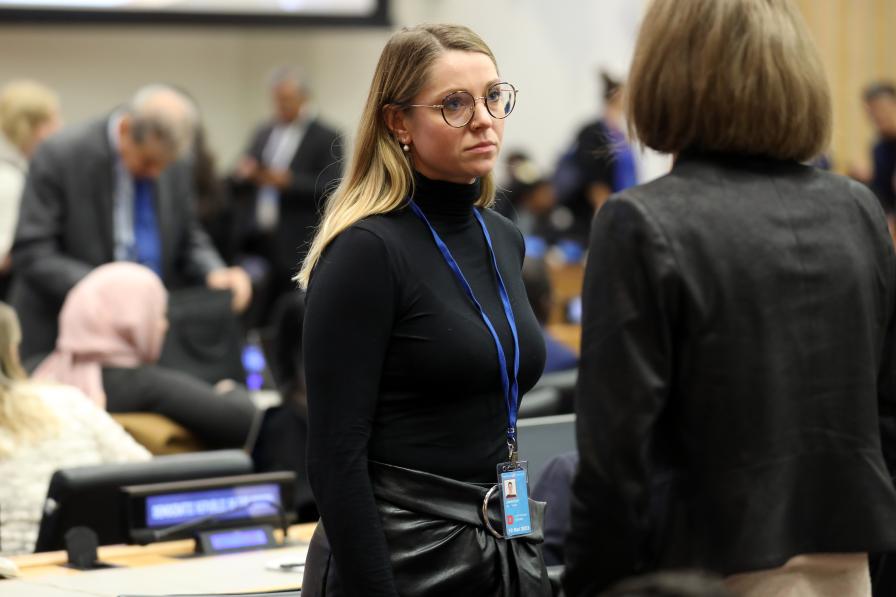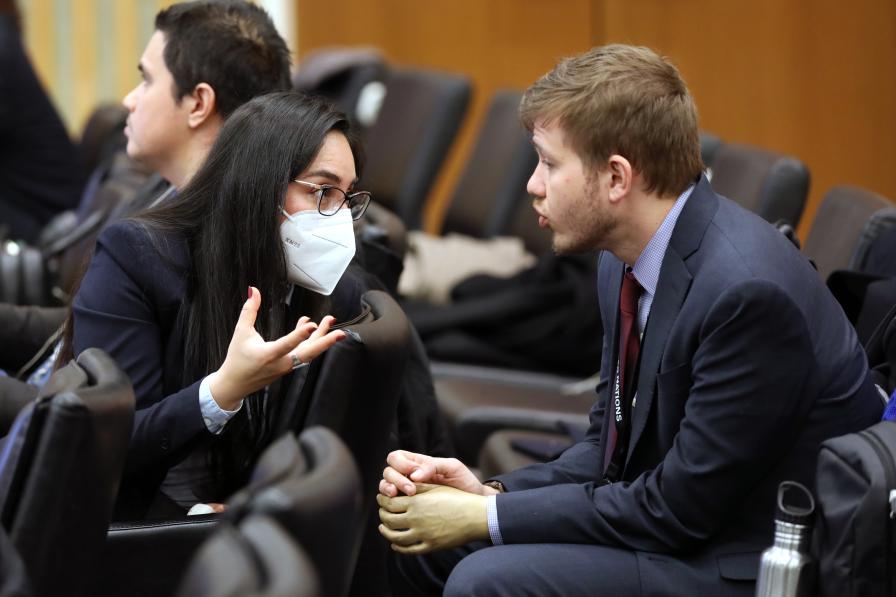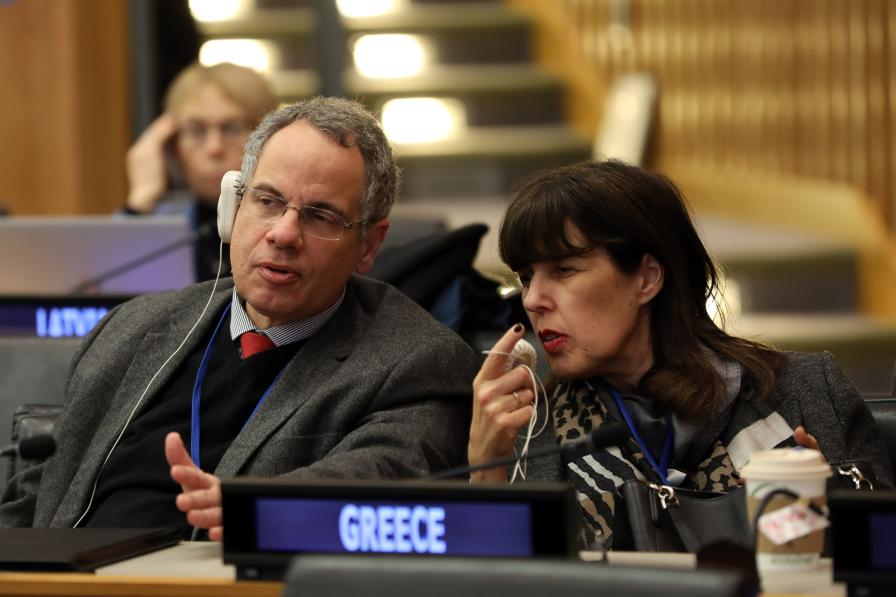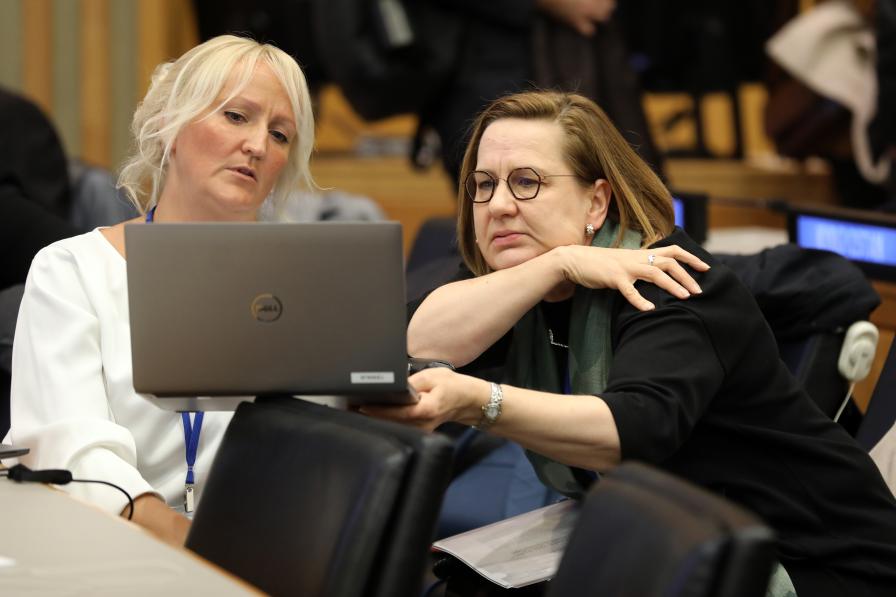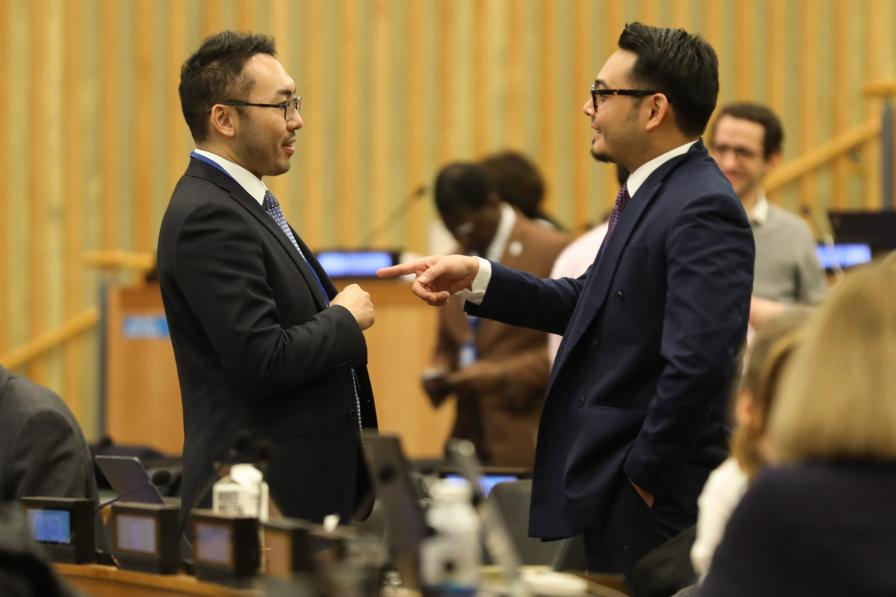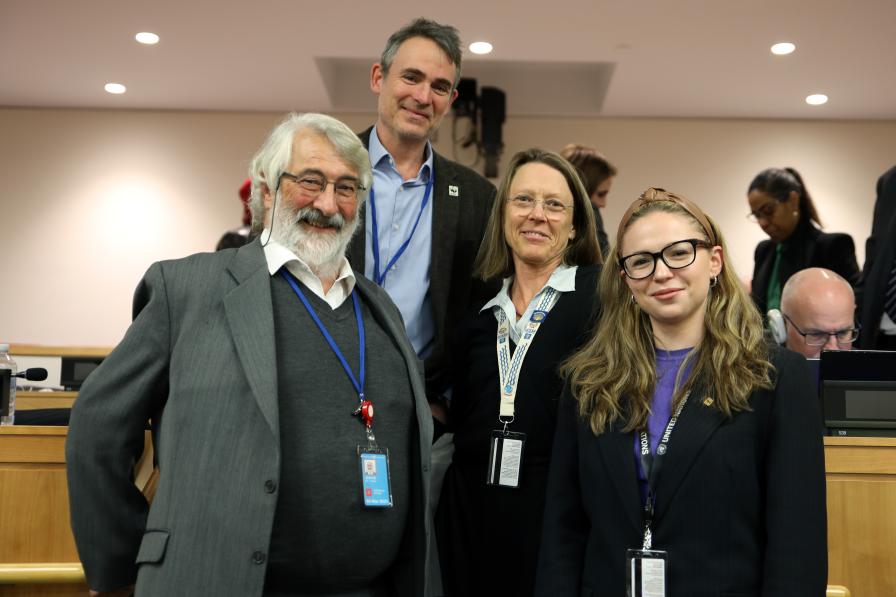On the penultimate day of what many believe will be the final round of negotiations, delegates worked to find compromise on outstanding issues at the resumed fifth session of the Intergovernmental Conference (IGC-5.2) on the conservation and sustainable use of marine biological diversity of areas beyond national jurisdiction (BBNJ).
Want to dive deeper? Read the full Earth Negotiations Bulletin daily report.
During the morning plenary, facilitators updated delegates on the deliberations so far. In her report, IGC President Rena Lee, Singapore, shared that she had convened President’s consultations, which ran into the night on Wednesday, addressing questions related, in large part, to monetary benefit-sharing. She noted that, although delegations had not agreed to a text she had presented, they had worked in small groups to try and find areas of convergence.
Delegates spent the rest of the day addressing outstanding issues related to: environmental impact assessments (EIAs); capacity building and the transfer of marine technology (CB&TT); and cross-cutting issues, specifically related to the preamble, institutional arrangements, compliance, and dispute settlement.
On the preamble, delegates discussed a series of new suggestions on how to reflect the freedom of the high seas and/or the principle of the common heritage of humankind. With no agreement in sight, one delegation proposed deleting both references altogether. This was not supported by the wider group, and the text with these and a number of other bracketed preambular paragraphs were forwarded to IGC President Lee.
Delegates made a significant breakthrough on the long-standing issue of thresholds and factors for conducting EIAs. They agreed on a tiered approach, including that when a planned activity in areas beyond national jurisdiction “may have more than a minor or transitory effect” on the marine environment or the effects of the activity are unknown or poorly understood, the party with jurisdiction or control of the activity shall conduct a screening of the activity, using a list of factors.
Pending a reservation from a group of countries, consensus was also reached on noting that if it is determined, on the basis of the screening, that the party has reasonable grounds for believing that the activity may cause substantial pollution of, or significant and harmful changes to, the marine environment, an EIA shall be conducted.
Delegates managed to clean large parts of the text related to CB&TT, including an express acknowledgement that technology transfer would be directed at developing countries, as opposed to all countries. On institutional arrangements, they were unable to fully converge on the operation and function of the Conference of the Parties, and on provisions related to the scientific and technical body.
They were unable to agree of provisions related to procedures for the settlement of disputes, with delegates forwarding the text to the IGC President with three options (mandatory dispute settlement procedures; negotiations; and friendly negotiations and consultations) remaining in brackets. Most delegates supported mandatory dispute settlement procedures, with the inclusion of final provisions on how nothing under this agreement shall be relied upon as the basis for claims including in respect the any disputes, in hopes of bringing remaining delegates on board.
Delegates also met in a few small group discussions scheduled during the day. IGC President Rena Lee held closed-door consultations with delegations throughout the day and into the night, towards a “marathon finish” of this treaty-making process.
To receive free coverage of global environmental events delivered to your inbox, subscribe to the ENB Update newsletter.
All ENB photos are free to use with attribution. For the Resumed 5th Session of the Intergovernmental Conference (IGC) on BBNJ, please use: Photo by IISD/ENB | Mike Muzurakis
Plenary Session
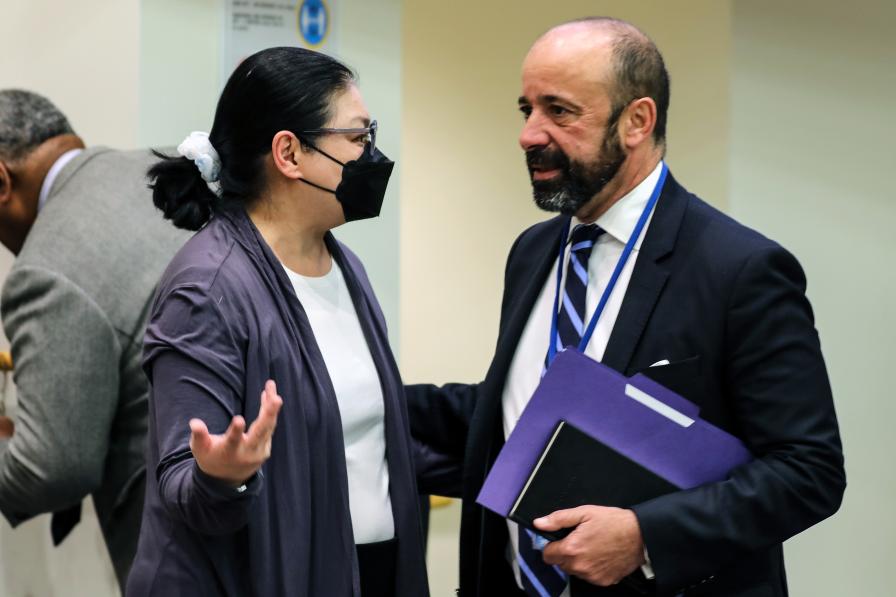
IGC President Rena Lee, Singapore, with Miguel de Serpa Soares, Secretary-General of the IGC, Under-Secretary-General for Legal Affairs and UN Legal Counsel
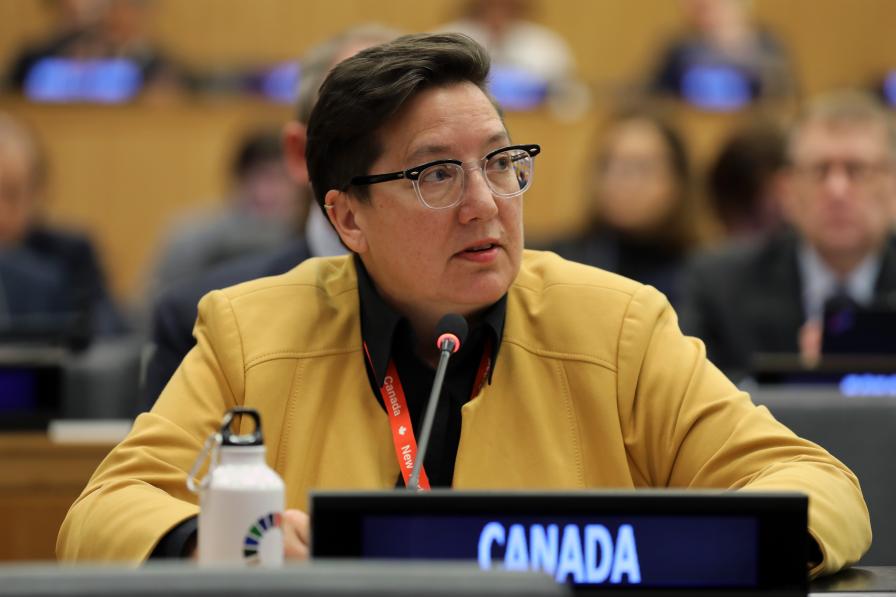
Renée Sauvé, Canada, reported on the informal discussions on area-based management tools, including marine protected areas
